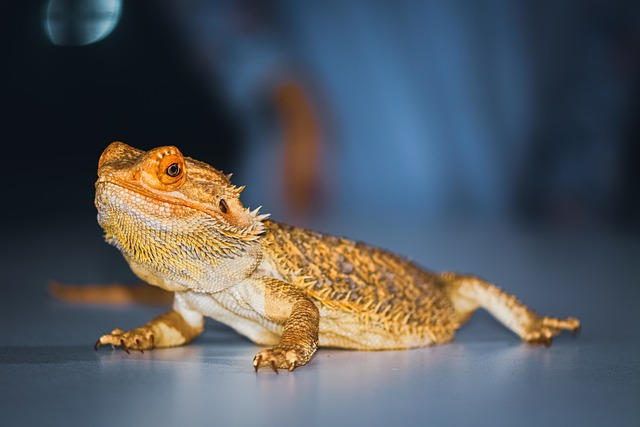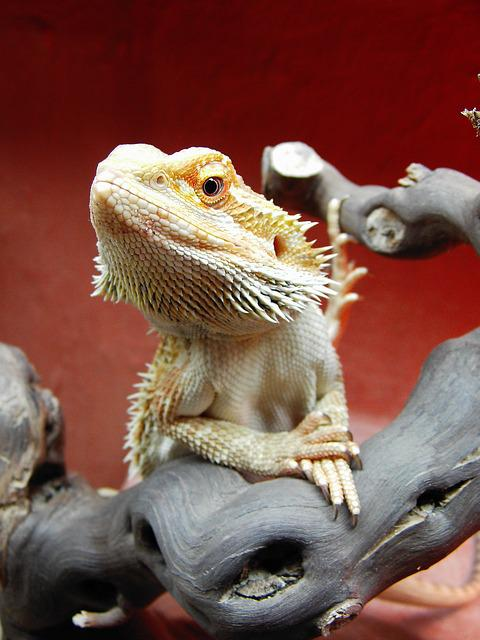Why is my bearded dragon shaking? Bearded dragons are popular pets, but sometimes they start to shake for no apparent reason. Do you have a bearded dragon that is shaking? If so, you may be wondering what is wrong with him. In this blog post, we will discuss some of the most common reasons why your bearded dragon may be shaking. We will also provide some tips on how to help your bearded dragon feel better.
Why Is My Bearded Dragon Shaking?

Reasons Your Adult Bearded Dragon May Be Shaking?
There are many reasons your bearded dragon might be shaking. It could be that they’re too cold, or it could be a symptom of something more serious like worms or disease. If your bearded dragon is shaking and you’re not sure why, here are a few possible explanations.
One reason your bearded dragon might be shaking is that they’re too cold and in need of warmth. Bearded dragons are cold-blooded animals and rely on their environment to regulate their body temperature. If the temperature in their enclosure is too low, they will start to shiver to warm up. In severe cases, this can lead to hypothermia and even death, so it’s important to make sure that your dragon’s enclosure is at the correct temperature.
Another possibility is that your bearded dragon is shaking because they have worms or other parasites. These internal parasites can disrupt your bearded dragon’s digestion and cause them to lose weight, which can in turn lead to shaking. If you think your bearded dragon may have toxic worms in their digestive system, the best thing to do is to take them to a certified vet for a check-up and treatment.
Are Bearded Dragons Affected By Loud Noises?
Bearded dragons are easily scared by loud noises and sudden movements, so it’s important to create a calm and relaxed environment for them. If you think your bearded dragon is shaking due to fear or stress, try to make their surroundings more relaxing by adding hiding places and turning down the lights. You should also avoid handling your bearded dragon too much, as this can further stress them out. If your bearded dragon continues to shake after making these changes, it may be sick or injured. In this case, you should take them to see a vet as soon as possible.
They may be shaking due to stress or anxiety. If you’ve recently moved their enclosure, changed their diet, or introduced a new reptile into the home, they may be shaking from the stress of these changes. If you think your bearded dragon is shaking due to stress, try to create a more calming environment for them and give them time to adjust to the changes.
Bearded dragons may also shake if they’re sick or injured. If you think your bearded dragon is ill or injured, take them to the vet for an examination and early treatment.
Finally, some diseases can cause shaking as a symptom. For example, kidney disease can cause trembling as the kidneys begin to fail. Other diseases that may cause trembling include liver disease and even certain types of cancer.
Can Calcium Deficiency Cause A Healthy Bearded Dragon Shake?

There are many possible explanations for your bearded dragon shaking. It could be a sign of stress, excitement, or even illness. However, one possibility that is often overlooked is calcium deficiency.
Calcium is an essential nutrient for all reptiles, and it plays a particularly important role in bone health. A lack of calcium can cause bones to weaken and break more easily. In beardies, this can lead to a condition called metabolic bone disease. Metabolic bone disease can cause shaking, as well as other problems such as muscle weakness and paralysis.
If you think your bearded dragon might be calcium deficient, it’s important to take them to the vet for a check-up. Bearded dragons need a special diet that includes foods high in calcium, such as leafy greens and insects. If your vet confirms that your bearded dragon is calcium deficient, they will likely recommend changing their diet and feeding them supplements. With proper treatment, most beardies make a full recovery from metabolic bone disease.
How Can You Give Your Bearded Dragon Calcium Supplement To Prevent Metabolic Bone Disease?
A lack of calcium can lead to health problems such as tremors and muscle spasms. In the wild, bearded dragons consume a diet that contains a variety of insects, plants, and other small animals. This diet provides them with the nutrients they need to stay healthy. However, captive bearded dragons often do not have access to this varied diet. As a result, they may require supplements to prevent deficiencies.
Calcium supplements are an essential part of keeping your bearded dragon healthy. But how do you give your bearded dragon a calcium supplement?
There are a few different ways to give your bearded dragon a calcium supplement. One method is to dust their food with a powdered supplement. Another option is to provide them with a cuttlebone or reptile bone to chew on. You can also add liquid calcium to their water dish. Whichever method you choose, it’s important to follow the dosage instructions on the supplement package. Feeding your bearded dragon too much calcium can be just as harmful as not giving them enough. By following these guidelines, you can help ensure that your bearded dragon gets the nutrients they need to stay healthy and happy.
Conclusion
If your bearded dragon is turning black, it could be a sign of several different things. If your dragon is basking in too much heat, it could be suffering from heat stress or even heat stroke. If your dragon isn’t getting enough UVB light, it could be developing metabolic bone disease. And finally, if your dragon is ill or injured, its skin may have changed color as part of the healing process. If you’re concerned about your dragon’s health, take it to the vet for a checkup or medical examination.

